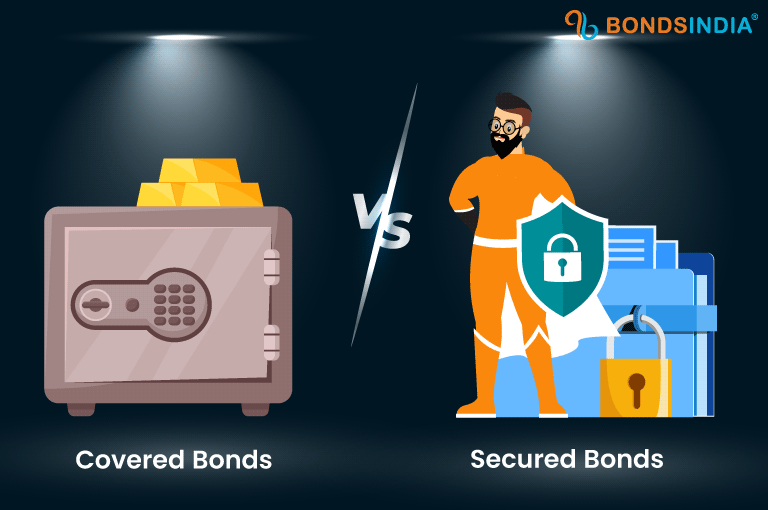5 Basic difference between Covered Bonds and Secured Bonds.
Covered Bonds: A hybrid between asset-backed securities and normal secured corporate bonds. Covered Bonds are primarily used by mortgage lenders and act as a tool for refinancing.
- Investors in the covered bonds are classified into two types small private investors and large institutional investors.
- Basically, covered bonds are issued by corporates.
- Covered bonds are known to be safer than normal bonds because of the additional cushion.
- Covered bonds have a higher credit rating than the issuer.
- Covered Bonds are primarily used by mortgage lenders and act as a tool for refinancing.
Secured Bonds: Secured Bonds are a type of investment in debt that is secured by a specific asset owned by the issuer.
- Secured bonds are seen as less risky than unsecured bonds because investors in them are at least partially compensated for their investment in the event of default by the issuer.
- Secured Bonds collateralized by assets such as property, equipment, or an income stream.
- Secured Bond gives the investor first rights to certain collateral in case the issuer defaults on the payments.
- Secured Bonds offer slightly less interest in return for their greater safety.
- Secured bonds issued by Utilities and municipalities corporations.

Leave a comment